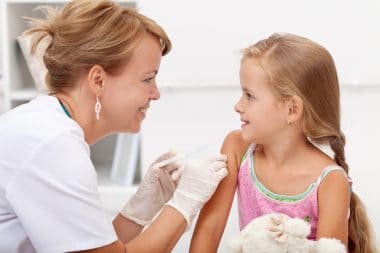Economies the world over have been collapsing, most movement has been halted, and the individual’s established routines have faced a major overhaul. This has been the global reality for the past few months since the coronavirus hit and obtained pandemic status. But no entity has been bogged down as much as the healthcare industry has been. Every day, doctors, nurses, and health professionals the world over have been valiantly defending the frontlines and have been subject to extreme vulnerability and exhaustion.
These days, hospitals and other healthcare facilities are at the greatest risk of exposure. Because of this, it is vital to employ a strict protocol in these places so that further spread of the virus can be prevented.
The following are some of the best practices health managers can employ in their facilities in order to control the covid-19 disease and stem its transmission.
1. Testing and Referral
Once a patient comes in and is identified to be a possible carrier of the virus, testing must be administered immediately. If the hospital or healthcare facility doesn’t have the means to tend to the patient for having the sickness, then the patient must immediately be referred to a facility that can accommodate him and administer care.
2. Immediate Isolation
If tested positive for the virus, the patient must be immediately isolated. If possible, isolate those who are confirmed for the virus and those who are still awaiting verification of their results.
3. Decrease exposure through protective equipment.
Supply patients with masks and have them wear them over their nose and mouth. Lessen the spread of respiratory secretions as soon as possible.
4. Perform adequate surveillance checks.
It may be necessary to investigate patient history and understand current and past health complications, where the virus could have been contracted, and perform the necessary actions after such information has been obtained. For system-wide surveillance and tracking of trends, as well as to lend insight on better ways to track developments and control the measures by which the virus gets spread, there are professionals at Diligence International Group to help give the best results when expert scrutiny is needed.
5. Contact tracing and dissemination of information.
Make sure to inform the necessary people of the person’s sickness so that establishments visited, and individuals interacted with can address the possible contamination from contact with the patient.
6. Routine sanitation and disinfection of premises.
Since patients go in and out regularly, management must be able to employ scheduled deep cleaning, sanitation, and disinfection of all surfaces as well as the respiratory environment.
7. Strict implementation of rotation schedules.
Whenever possible, doctors, nurses, and all personnel must have rotation schedules that allow for them to be outdoors for a significant amount of time, in order to keep the proper circulation of the air that they breathe and consequently reduce their risk for inhaling infectious particles in enclosed areas.
These guidelines should be effected system-wide. As for the health workers, preventive measures should be observed at all times in order to eliminate any possibility for infection.
1. Use of Personal Protective Equipment (PPE) in exposed areas.
Personal Protective Equipment must be supplied by the facility and must be adequate — i.e., effective in protecting the health workers according to the hazards that they are exposed to at the workplace.
2. Frequent hand-washing and social distancing.
Just like the normal citizen, healthcare workers should practice frequent handwashing before and after every patient interaction. Social distancing measures should also be practiced with fellow doctors and other hospital staff.
3. Avoid touching eyes, mouth, face, and other parts of the body before washing.
This must be taken to heart because of the fact that one touch with a contaminated hand can equate to possible infection.
4. Keep proper rotation schedules.
This is vital in making sure that your immune system is in tip top shape and able to ward off any infections. Overwork causes fatigue that can lead to a compromised immune system, which can make a person susceptible to infection.
5. If any symptoms appear, get tested and quarantine immediately.
It is important to be aware of your own body and listen if any manifestations of the virus possibly come up. Get yourself tested as soon as you can and isolate yourself from co-workers as well as family and friends in the meantime. The best thing you can do is make sure that you don’t contribute to the further spread of the disease.
6. Follow a balanced diet; exercise regularly; get enough sleep.
These basics have been taught since kindergarten and they are still one of the best ways to protect healthcare workers and any individual from sicknesses and disease. A healthy lifestyle is the best shield from any unwanted intruders.
With cooperation from healthcare industry managers as well as doctors, nurses, and all healthcare and hospital staff, implementing these best practices are the best strategy in mitigating corona’s unfortunate effects on our society as a whole.








Reply